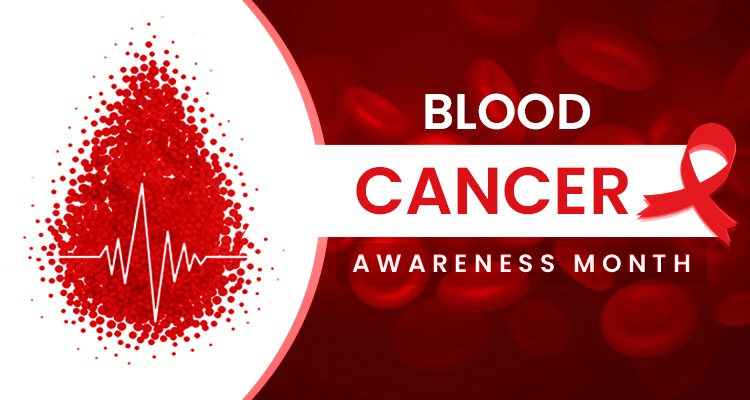By: Dr. Amita Mahajan
September signifies Blood Cancer Awareness Month 2025. Blood cancer is one of the more misunderstood health conditions. There have been vast developments in medicine; however, fear, myths, and misinformation exist around blood cancer which ultimately limits the potential for patients and families to access the right care, at the right time.
The National Cancer Institute reports that nearly 39% of men and women will develop some form of cancer in their lives. There are many genetic alterations, environmental exposures (e.g. tobacco, radiation), and lifestyle choices (e.g. diet, body weight, and physical activity) which drive the risk of cancer, however misinformation makes the path through a blood cancer diagnosis much harder than necessary.
In honor of this awareness month, let’s take some time to help differentiate blood cancer myths from the facts—as knowledge is power and empowered choices can save countless lives.
Common Myths and Facts about Blood Cancer
1. Myth: Sugar and Meat Should be Avoided During Treatment.
Fact: There is no scientific evidence that avoiding sugar actually stops or slows blood cancer. All cells – both healthy and cancerous – use glucose for fuel. While excessive sugar can certainly lead to obesity (a known risk factor for cancer), stopping sugar will not treat the disease. Meat does provide needed protein to allow for necessary strength during treatment. Patients may avoid meat sometimes because chemotherapy leaves them nauseous, meat is still not dangerous.
2. Myth: Cancer Treatment Means Life Can Never Be Normal Again.
Fact: Many patients are able to continue their daily lives, just sometimes partially, including working, while receiving treatments. Patients may work with local doctors to work together with cancer specialists, so that treatments might sometimes be able to be handled at home. Everybody has a different experience
3. Myth: All patients with blood cancer need a bone marrow transplant.
Fact: There is a subset of patients that require a bone marrow transplant. About the need for a bone marrow transplant really relates to the patient’s specific type of blood cancer, genetic profile, stage of disease, and response to therapy. Innovation in targeted therapies and precision medicine have given many patients acceptable treatment results without a bone marrow transplant.
4. Myth: Blood cancer is completely genetic and can’t be avoided or prevented.
Fact: Yes, genetics could increase risk, but lifestyle raises risk as well. Just because you have a gene (like BRCA1) doesn’t mean you will get blood cancer. Just because you come from a family with a history of blood cancer, just avoiding tobacco, eating a well-balanced diet, and exercising is protective and it lowers your risk.
5. Myth: Vitamins and Supplements will protect you against blood cancer.
Fact: There is no reputable scientific evidence that supplements have a protective effect against blood cancer – in fact using too many supplements could pose health risks. You know what they say – the best sources of nutrients are from whole foods, including lots fruits and vegetables.
6. Myth: Blood Cancer Cannot Be Treated
Fact: Blood Cancer is no longer a death sentence due to the advent of modern therapies including chemotherapy, immunotherapy and targeted therapies, radiotherapy, and bone marrow or stem cell transplants. Survival rates highlight that when caught early, there are good odds for surviving cancer, and many patients today have fulfilling lives.
The Path Forward: Knowledge is an Empowering Tool.
Blood Cancer awareness is ultimately not about treatment; it is about hope. When myths are broken down, patients and families can look to the future with clarity and confidence. In the last 25 years, advances in medicine and emphasis on patient knowledge have led to greater survival and quality of life year after year.
In this Blood Cancer Awareness Month 2025, let us replace fear with facts, myth with knowledge, and despair with hope.












More Stories
How “Lockdown-Level” Emissions Cuts Might Clean Delhi’s Air by 2040
Cyclone Ditwah: IMD Issues Red Alert for Tamil Nadu, Puducherry, and Southern States
Hong Kong Fire Death Toll Climbs to 55; Dozens Still Missing as Blaze Burns Into Second Day